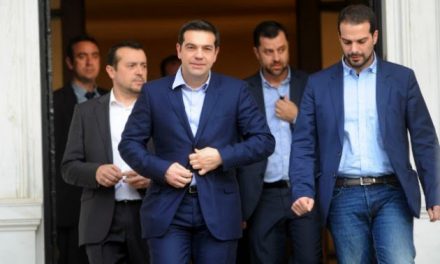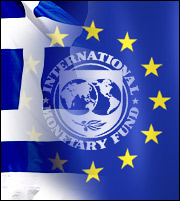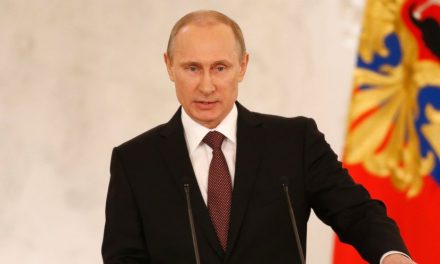By Darrell Delamaide, Business Insider
As Greece wrangles with its creditors for a more sustainable solution to its debt problems, International Monetary Fund Managing Director Christine Lagarde has been firm in insisting that the new government in Athens honor the country’s previous commitments.
The former French finance minister threw cold water this week on the tentative accord between Greece and the European Union, warning that many of Athens’s pledges were vague and “not conveying clear assurances that the government intends to undertake the reforms envisioned.”
And yet, it is becoming clearer by the day that the Greek bailout debacle is likely to leave a black mark on the IMF and damage its credibility.
In a 90-minute documentary aired this week on the French-German public television station Arte, an executive director from the international lending agency said that in 2010, when the Greek bailout was initially arranged, the IMF violated its own lending rules, apparently for political reasons.
Brazilian executive director Paulo Nogueira Batista said the agency’s rules were changed in a clandestine manner to allow the IMF to provide its share of bailout funds far beyond the normal limits allowed, and above all to violate the principle not to make any loans that have no chance of being repaid.
Philippe Legrain, a former adviser to the European Commission president, told Arte that the IMF managing director at the time, Dominique Strauss-Kahn, overrode objections from IMF staff so that Greece could pay the money it owed to French banks and not endanger his chances to run for president in France.
A former IMF official in the U.S. also took the agency to task this week for abusing its “exceptional access lending” — loans over and above the normal quota limits — in the Greek case.
“Despite the IMF’s rules that it is not supposed to resort to exceptional access lending when a country’s public debt is unsustainable or when the chances of program success are not good, the IMF has managed to lend to Greece some 1,860% of quota,” wrote Desmond Lachman, former deputy director of the IMF’s policy department. “That is more than three times the normal maximum IMF limit for such lending.”
This flagrant departure from its own guidelines might have been justified, Lachman continued, if it had produced any beneficial results. Instead, it has been a failure down the line.
“The monumental budget austerity that the IMF imposed on Greece, within a euro straitjacket that precluded devaluation to boost exports, has reduced the country to penury and has destroyed its social fabric,” wrote Lachman, who is now a resident fellow at the American Enterprise Institute, a conservative think tank.
IMF staff, according to the Arte documentary, were well aware of the consequences of the drastic fiscal adjustment being imposed on Greece. Former Greek executive director Panagiotis Roumeliotis showed what he said was a secret internal memorandum from the time that the IMF prescriptions would produce a “sharp contraction” and a “deep recession” in Greece.
The Arte documentary, entitled “Power Without Control: The Troika,” covered all three institutions behind the Greek bailout — the European Commission and the European Central Bank as well as the IMF — and looks at other countries besides Greece.
But while the EU and the ECB have a vested interest in maintaining the euro EURUSD, -0.02% and their view of the rules governing it, the IMF, with its broad international governance and long experience in bailouts, would be expected to take a more objective view.
Except, of course, that the heads of the IMF involved in the bailout have been French, with Lagarde replacing Strauss-Kahn when a sex scandal forced him to resign in disgrace and put paid to his presidential ambitions after all.
Lagarde may want to moderate her insistence that everyone follow rules as if they were set in concrete, considering that the IMF itself has been so flexible with its own rules when it suited its French managing directors.
Lachman, who is pessimistic about Greece having any chance of remaining in the euro, maintains some optimism that the IMF will draw some lessons from the Greek bailout. But his faint hope for the future is damning in its verdict for the past mistakes.
“When the Greek dust settles,” Lachman wrote this week, “one must hope that the IMF will go back to the drawing board and reform its lending-access-limits policy in a manner that will make the IMF less of a slush fund that can be abused by its political masters and more of the catalytic and conditional lender that the IMF once was.”
What is certain is that the IMF’s own ambiguous role will come under closer and unflattering scrutiny as the Greek imbroglio heads to some sort of resolution.



















